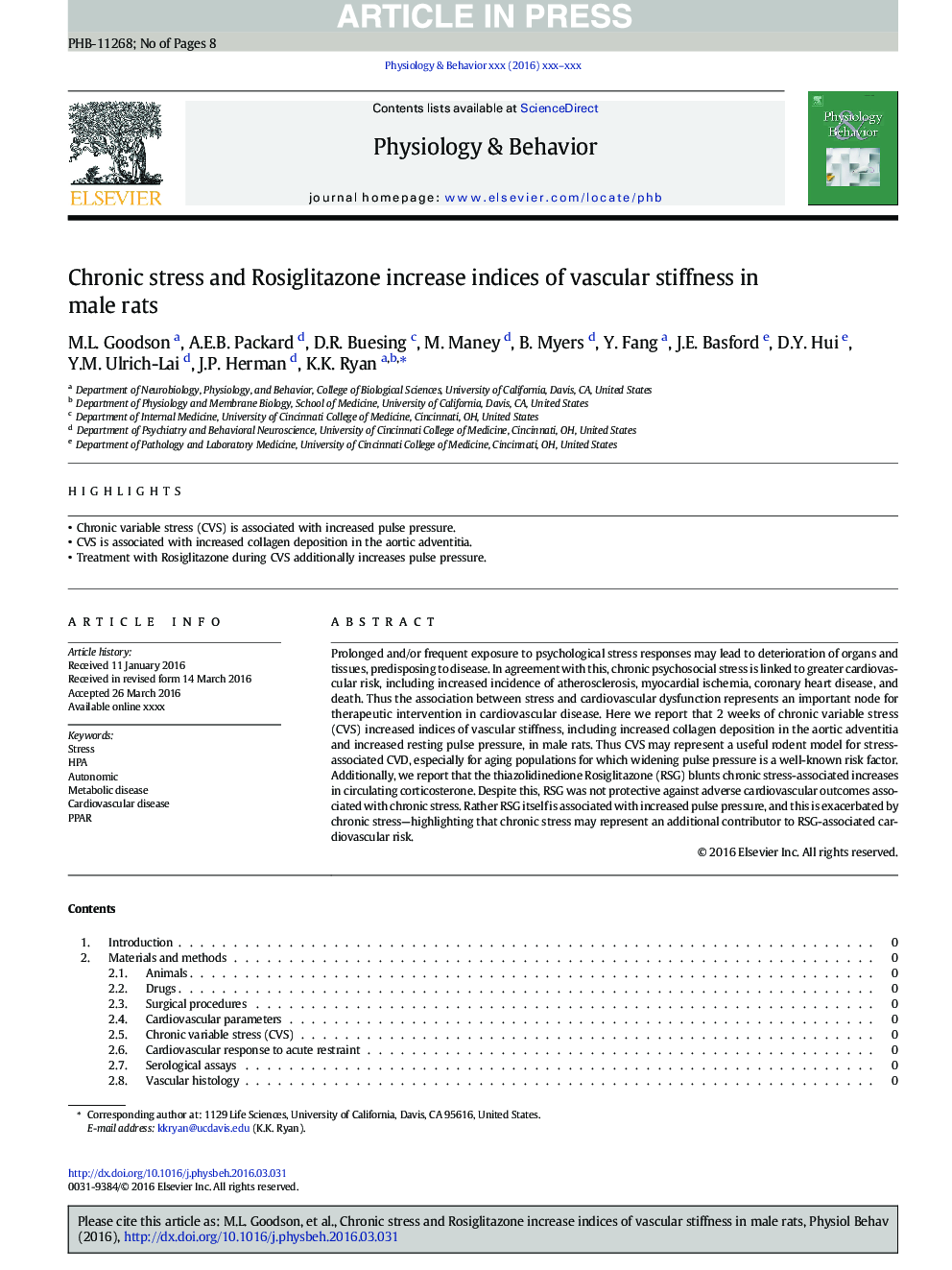| Article ID | Journal | Published Year | Pages | File Type |
|---|---|---|---|---|
| 5593955 | Physiology & Behavior | 2017 | 8 Pages |
Abstract
Prolonged and/or frequent exposure to psychological stress responses may lead to deterioration of organs and tissues, predisposing to disease. In agreement with this, chronic psychosocial stress is linked to greater cardiovascular risk, including increased incidence of atherosclerosis, myocardial ischemia, coronary heart disease, and death. Thus the association between stress and cardiovascular dysfunction represents an important node for therapeutic intervention in cardiovascular disease. Here we report that 2Â weeks of chronic variable stress (CVS) increased indices of vascular stiffness, including increased collagen deposition in the aortic adventitia and increased resting pulse pressure, in male rats. Thus CVS may represent a useful rodent model for stress-associated CVD, especially for aging populations for which widening pulse pressure is a well-known risk factor. Additionally, we report that the thiazolidinedione Rosiglitazone (RSG) blunts chronic stress-associated increases in circulating corticosterone. Despite this, RSG was not protective against adverse cardiovascular outcomes associated with chronic stress. Rather RSG itself is associated with increased pulse pressure, and this is exacerbated by chronic stress-highlighting that chronic stress may represent an additional contributor to RSG-associated cardiovascular risk.
Related Topics
Life Sciences
Biochemistry, Genetics and Molecular Biology
Physiology
Authors
M.L. Goodson, A.E.B. Packard, D.R. Buesing, M. Maney, B. Myers, Y. Fang, J.E. Basford, D.Y. Hui, Y.M. Ulrich-Lai, J.P. Herman, Karen K. Ryan,
